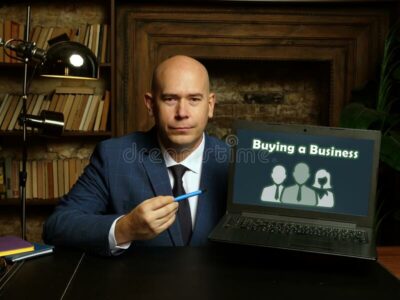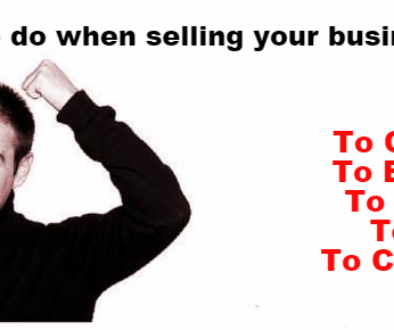Who Would Be the Buyer of Your Small Business? Part 2
Who are the Buyers for Privately-Held Companies and What is Their Acquisition Criteria?
Understanding who the buyers are and their acquisition criteria will enable business owners to be better prepared when the time comes to sell. Unrealistic expectations of value and factors that drive value result in many business owners being unable to sell their business. When a business is on the market for a long period of time, pre-disclosure to employees, customers and suppliers can be detrimental to the business. Alternatively, proper valuation, packaging and presentation to the most likely buyers enhances the probability of a sale within a reasonable period of time.
Already addressed in Part 1 of this subject was the Individual Buyer Category. Discussed here will be the Financial Buyer (sometimes called investment buyer) and Synergistic Buyer categories. Each have specific identifiable acquisition criteria.
THE FINANCIAL BUYER
There are approximately 200 well-known financial or investment buyers in the US and many more lesser-known groups that come into and out of the market. In general, these types of buyers are groups of people who have pooled their funds for the purpose of acquiring either spin-off divisions of public companies or midsize privately held firms. These buyers may operate in the form of public corporations, private corporations or one of several partnership entities; however, in most instances they form a separate “holding company” for each of their acquisitions. The financial buyer’s primary goal is to acquire a company or a group of companies and then cash out, usually within five years through either selling the business to a public company or taking the business public.
The company to be acquired must either be large enough to be considered a “Platform Company”, or be a synergistic Add-On Company. A Platform Company is usually already a midsize or large firm that holds a dominant position within its industry. Once a Platform Company is acquired, then an “Add-On Company” will be a smaller firm within the same industry. The financial buyers will provide the capital that enables the Platform Company to grow internally as well as by acquisitions of similar businesses. Then when the Platform Company becomes large enough to be an attractive target for being acquired by another large company or to take public, the financial buyer cashes out.
The financial buyer’s seed capital usually comes from their pool of investors who are often wealthy individuals that have substantial business experience in corporate America. These individuals may still be active in their companies serving as high ranking officers or individuals who have recently retired and have the funds to invest in growth businesses. Long-term financing is usually arranged through banks and mortgage companies. Often mezzanine financing is needed to bridge the gap between the sales price and the long-term financing. Mezzanine financing is typically provided by financial firms who specialize in these types of transactions. Mezzanine financing is often unsecured or at least in a secondary position to the long term lender. The mezzanine lender often receives stock in the company being acquired as an additional incentive to provide the needed funds. Often, the seller is asked to take back stock in the acquiring company as part of the selling price and ride along with the other investors until they can all cash out.
Acquisition Criteria of the Financial Buyer:
- Target companies who are a dominant player in their industry and already have the infrastructure to support a regional or national operation. Generally, the Platform Company must have gross revenues in excess of $8 million.
- Add-On Companies must have gross revenue in excess of $3 million and be in the same industry as the financial buyer’s Platform Company.
- The target company must have key management personnel who are willing to stay on and manage the company. Typically, financial buyers do not have readily available management with the necessary operational skills to run the target company.
- Financial buyers have no interest in industries that have no dominant players on a regional or national basis or where the total market for the industry is small with little room for significant growth.
The synergistic buyers are US companies and foreign companies who are already established within an industry. They are usually a dominant player within their geographic region or on a national basis and seek rapid growth through acquisition. These buyers will be operating as public corporations, private corporations or an established partnership. Often the target company is merged in with the acquiring company either immediately or over a period of time. The synergistic buyer’s primary goal is to acquire a company or a group of companies within the same industry to gain economies of scale and business growth not otherwise available. These buyers are seeking long-term growth rather than rapid growth and quick cash out sought by the financial buyers. Private companies may be looking for sufficient growth and size to go public; however, the principals in the acquiring firms typically plan on remaining in the operations on a long-term basis.
The synergistic buyer’s seed capital usually comes from their own equity funds. Long-term financing is usually arranged through banks and mortgage companies. Sometimes mezzanine financing is needed to bridge the gap between the sales price and the long-term financing. The principal in the target firm may be given stock in the acquiring company as part of the selling price and hired to continue managing the acquired firm or a division of the acquiring company that includes the acquired firm.
Acquisition Criteria of the Synergistic Buyer:
- Generally, target companies must have gross revenue in excess of $1 million and be in the same or similar industry as the synergistic buyer.
- The target company must offer unique market share not readily available to the acquiring company, such as opening in a new market not previously served by the acquiring company or obtaining product lines and/or services not previously provided, but synergistic to the acquiring firm customer base.
- Target companies will be especially attractive in industries where economies of scale are possible whereby the acquiring company can obtain significant post-deal expense savings, such as elimination of dual facilities, support staff, or other overhead expenses.
Selling a business can be a traumatic and frustrating experience or it can be a financially rewarding experience providing peace of mind knowing that the business, that has been nurtured with blood sweat and tears, will continue on with job security for its employees and a continuing source of products and services for its customers. Owning a business is part of the American dream. Cashing out can be the continuation of that dream or a nightmare depending upon how the transaction is handled.
Choosing an experienced business broker (intermediary) to guide you through the complicated process of a business sale can insure that the business is priced right, packaged to put the best foot forward and presented to the right buyers in a confidential and professional manner. The costs of the business intermediary’s services are usually more than offset by their ability to prequalify the maximum number of prospective buyers, to obtain a higher price due to proper valuation, and to successfully complete the transaction in a more timely, confidential manner. When buyers see that a business owner is trying to sell their own business, the buyer will reduce the seller’s asking price by at least the amount of what would have been a brokers fee. So if the seller ends up accepting the lower price, what did he save? He had to do all the work normally done by the broker, most likely not as well, yet did not get paid for it.




